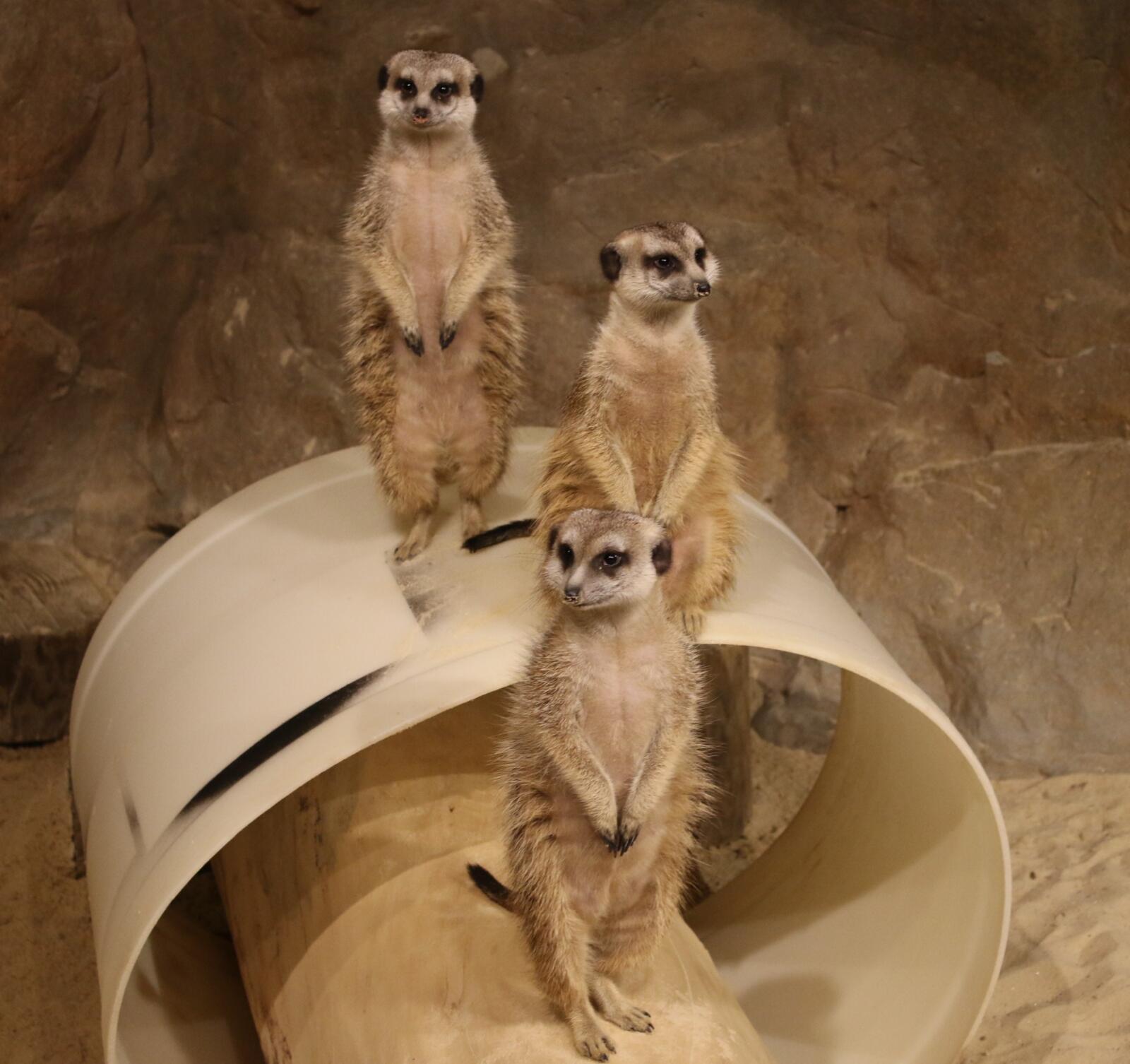Deserts & Forests of The World
Meerkats
Did you know...
that meerkats are immune to animal venom? Because of this, they often feed on venomous snakes and scorpions without harm.


Meerkats are diurnal, meaning they are active during the day. They live in groups of up to 40+ and spend most of their day foraging for food, watching for predators, and raising their young. They use their sense of smell to locate beetles, caterpillars, spiders, and scorpions to munch on. They also eat small reptiles, birds, eggs, fruit and even some plants. While others are searching for food, the young are being watched over by the "babysitters." Their main job is to protect the newborn pups from predators.
One or more members of the meerkat mob will act as a sentinel, on the lookout for predators. The sentry will stand on their hind legs, often using its tail as support. They find a high point or perch in a bush or tree scanning for danger. They scan the sky and desert for predators like eagles, hawks, and jackals. If they spot danger, they vocalize a high pitched squeal, sending the mob scrambling for cover. The type of sound from the sentinel tells the group the type of threat. There are different sounds for arial and land threats. Meerkat burrows have several safe places built in called "bolt holes" where they can hide in case of danger. If a group is confronted, they will stand together and make themselves look large and hiss in an effort to try and fool the predator into thinking they are one large animal.
_____________________________________________________________________________________________________________________________________________________
Can I feed a meerkat at the Zoo?

Yes, you can! Join us for a meerkat Wild Encounter. Click here to learn more.
___________________________________________________________________________________________
Do meerkats need conservation help in the wild
Fortunately, meerkats are doing fine and their numbers in the wild are very strong. However, it is still important to preserve their habitat. That's because they share their habitat space with several other species, some of which are not doing as well.
It's also important to note that because T.V. shows portray these animals as cute and social, people's interest in having them as pets have risen. Respecting them as wild animals and not pets is an important factor in helping to conserve their numbers in the wild.
How you can help meerkats
- Enjoy a Meerkat Wild Encounter at Chattanooga Zoo. A portion of the proceeds supports organizations that help protect meerkat habitat in the wild.
- Visit the Zoo. By supporting Chattanooga Zoo with your ticket purchase, you are our partner in saving and protecting wildlife worldwide.








